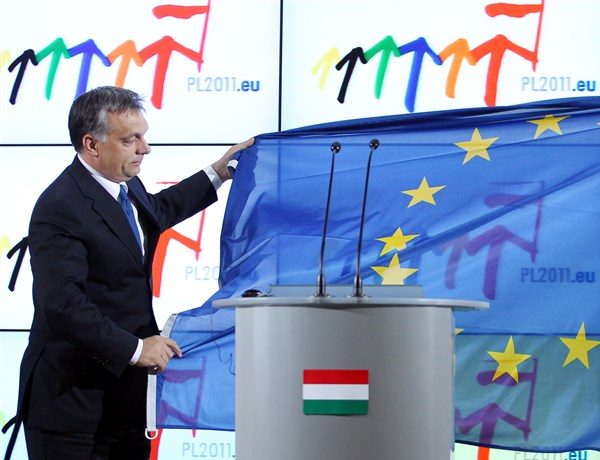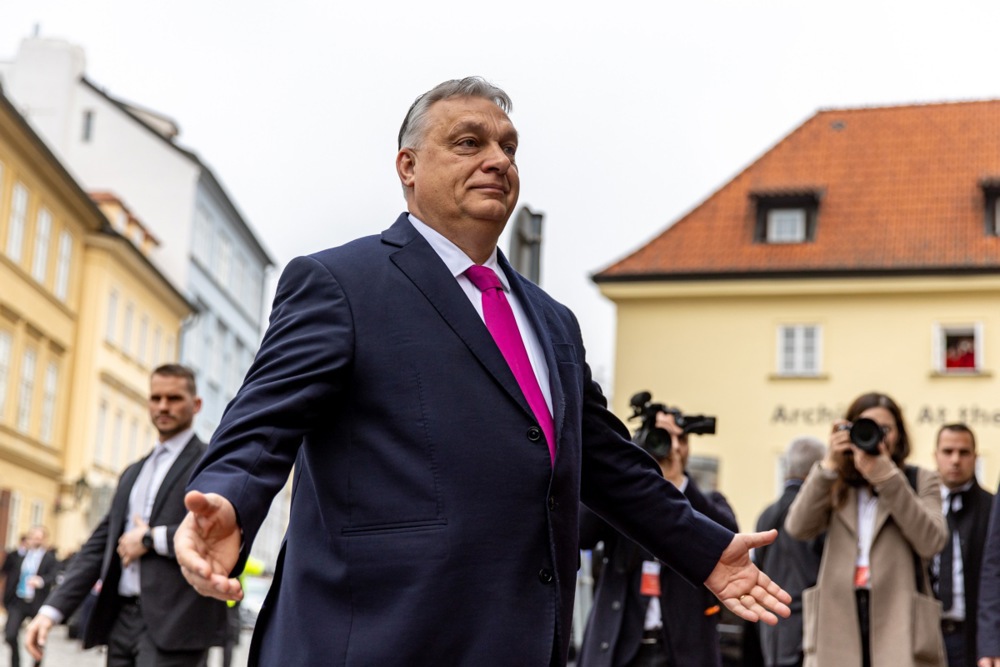Hungary is aiming to “Make Europe Great Again” as President of the Council of the European Union, the country proclaimed on June 18.
The slogan — which is to be the official motto of its six-month stint in the role that starts in July — has provoked snide responses within the Brussels bubble.
Budapest has defended the slogan from criticism that it is “unoriginal” and “embarrassing”.
“It is a reference to an active presidency,” Hungarian Minister for EU Affairs János Bóka said during a presentation of the country’s priorities for the coming six months.
“It shows manifest the expectation that together we should be stronger than individually, but that we should be allowed to remain who we are when we come together.
“It also portrays the idea that Europe is able to become a global actor in our transforming world,” he added. “It is able to articulate our strategic interest, to effectively assert them and to act accordingly.”
For all those who have already started the hysteria about the slogan of #HU24EU : but, seriously, do not you want to make #Europe great again?
As Brussel Signal says ?: https://t.co/JYmXFUsroz pic.twitter.com/2LpL4ZV6ht
— Enikő Győri (@GyoriEniko) June 19, 2024
Journalists have since pushed Hungarian representatives over whether the slogan is a reference to former US president Donald Trump’s “Make America Great Again” catchphrase.
Responding to one such request from a reporter at a press event on June 18, the country’s Ambassador to the EU Bálint Ódor noted he had never heard Trump “saying he wanted to make Europe great again”.
Fidesz MEP Enikő Győri reposted a tongue-in-cheek caption on the new slogan included in the June 19 edition of Brussels Calling, which described the similarities between MAGA and MEGA as “purely coincidental”.
“But seriously,” she added. “[Do you not] want to make Europe great again?”
Former US president Donald Trump has vowed close ties with Prime Minister Viktor Orbán’s Hungary “when” he is re-elected later this year. https://t.co/VyRQVKMlAE
— Brussels Signal (@brusselssignal) April 26, 2024
Alongside the new slogan, Hungary has also announced the key priorities of its coming presidency, which is set to begin on July 1.
Among the country’s goals are creating a farmer-focused common agricultural policy, EU expansion into the Western Balkans and shoring up the bloc’s military industry in an increasingly multipolar world.
Ódor told journalists there was fear that Europe’s economic trend was now “negative”, and that Hungary — as an “honest broker” — wanted to help to change the bloc’s course.
He particularly highlighted that the EU’s share of both global GDP and trade has declined since it was last in the president’s chair, and that the union now needed to reverse this.
Reporters meanwhile pressured the representative on Hungary’s position on Russia, with one even grilling Ódor over whether he would be in favour of prosecuting President Vladimir Putin.
The diplomat seemed slightly confused at first before clarifying that such an issue was “not an EU competence”.
The European Court of Justice has ordered Hungary to pay €200 million plus a penalty of €1 million per day if it does not comply with the court’s ruling of December 2020 to abide by EU laws on immigration. https://t.co/SLxoOGX16A
— Brussels Signal (@brusselssignal) June 13, 2024





